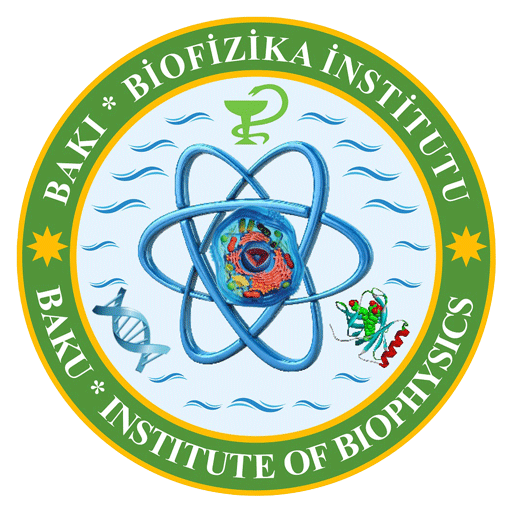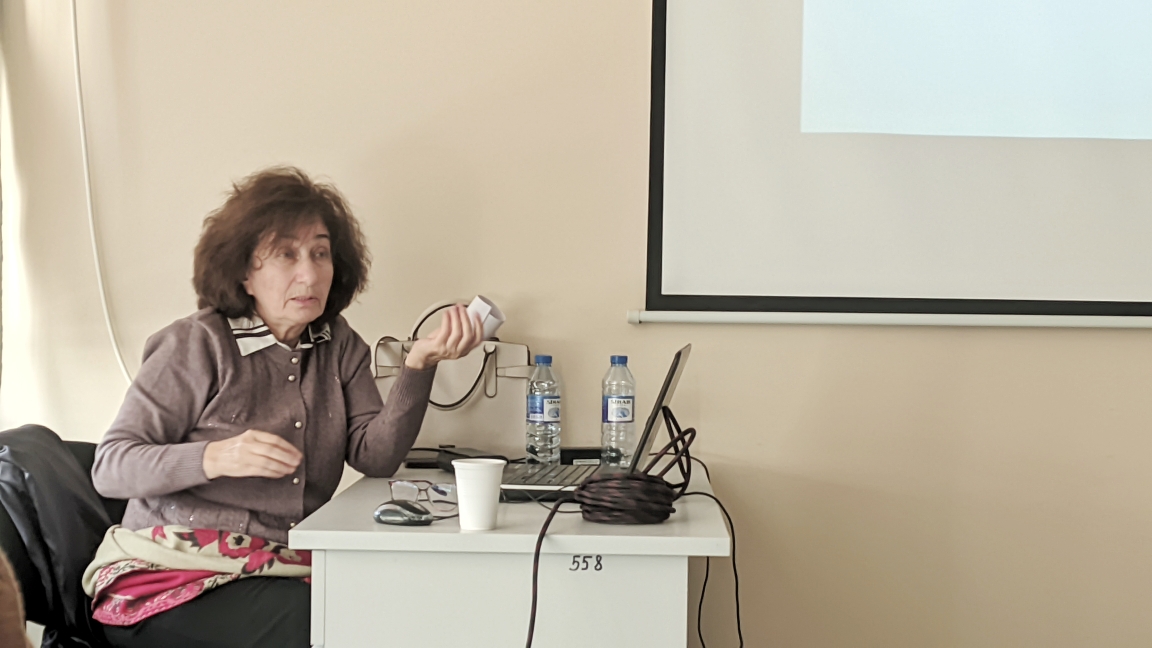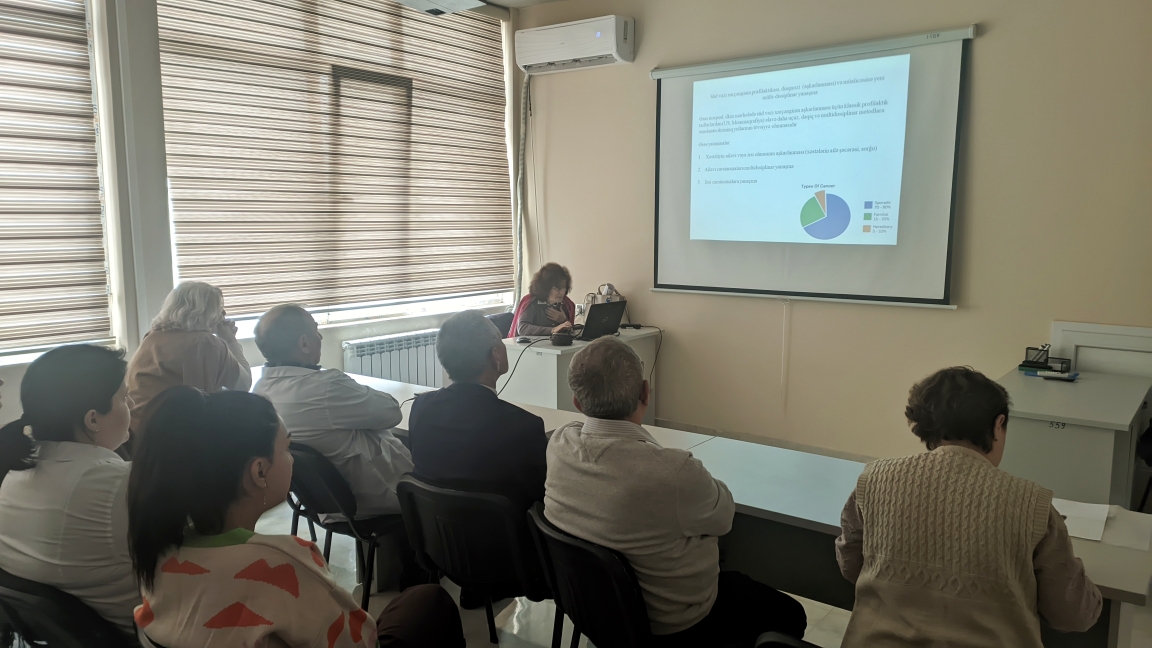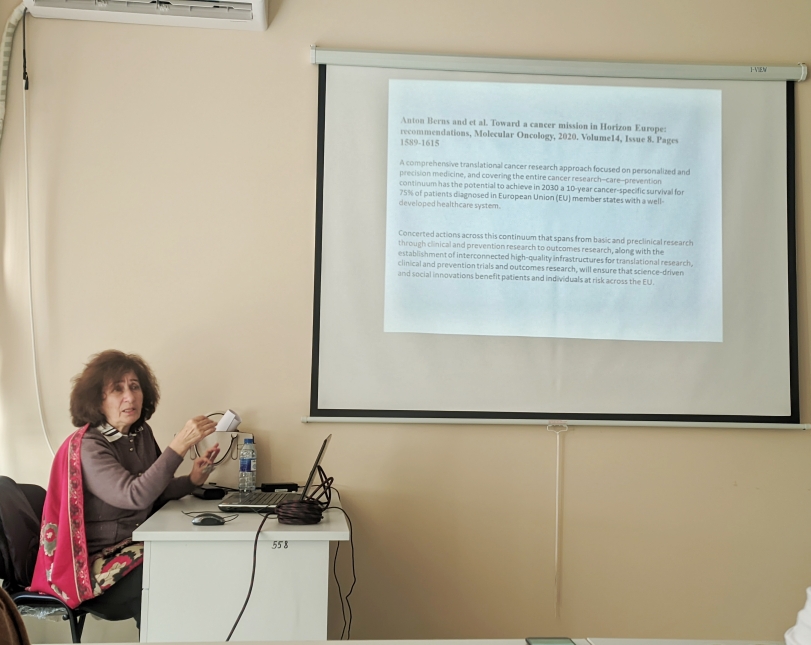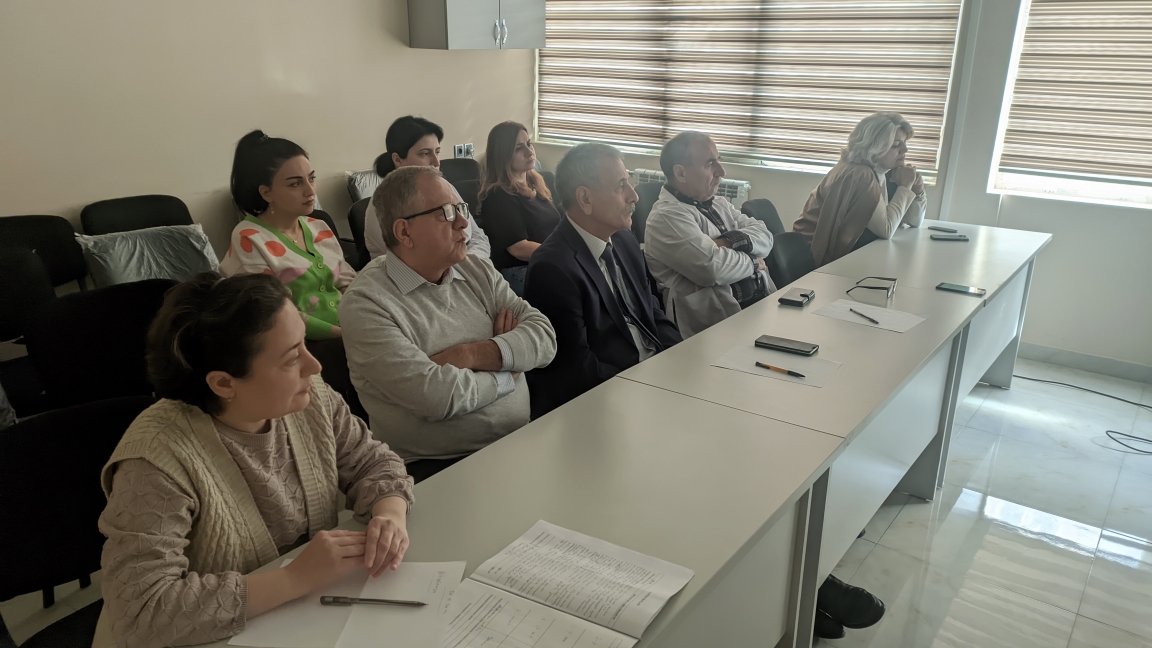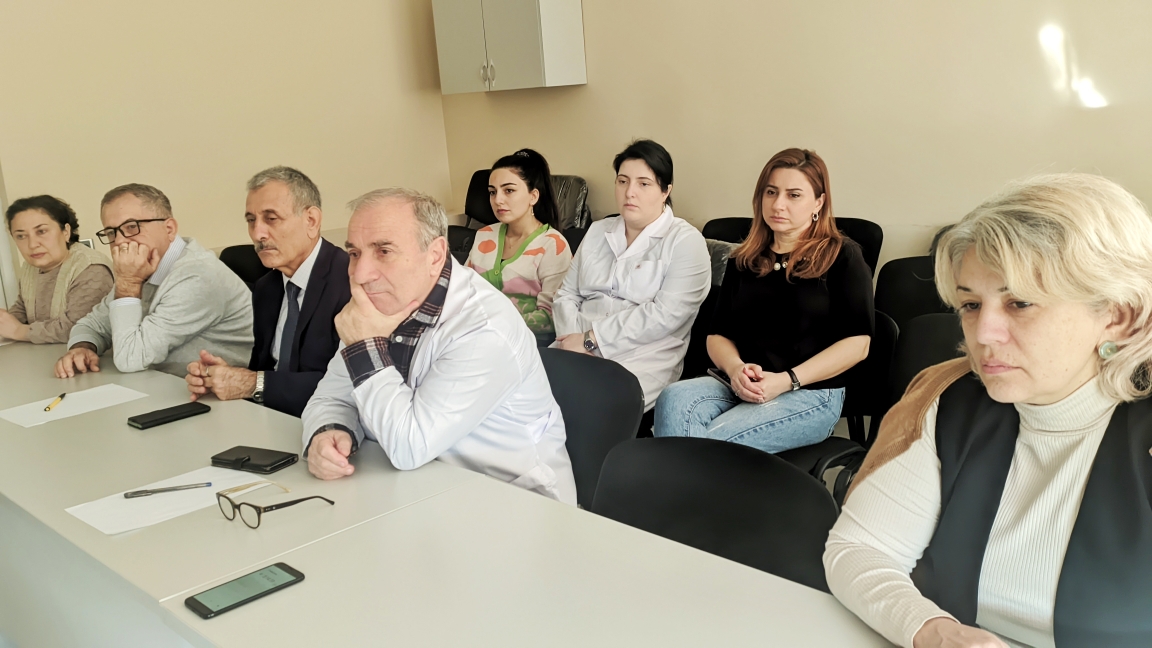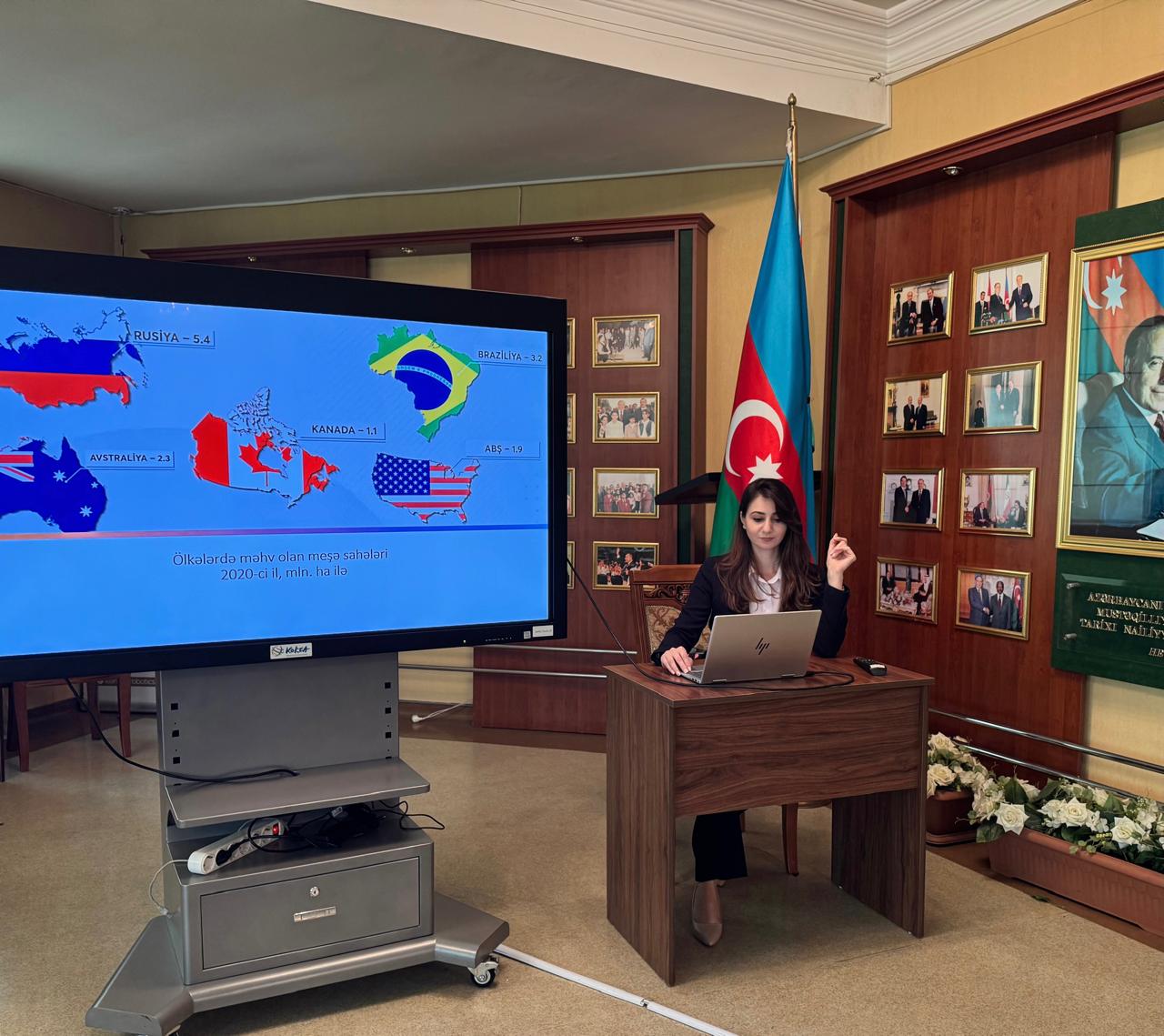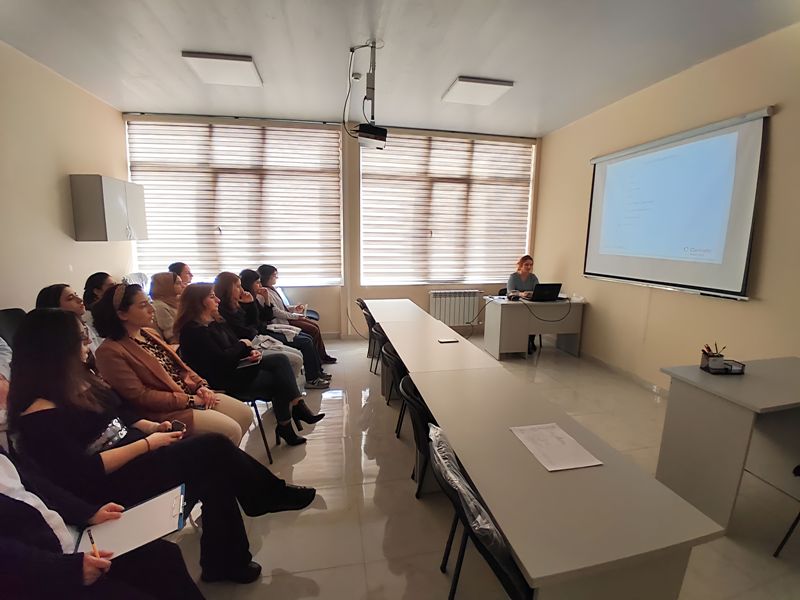Attestation of the doctoral student was held at the Institute of Biophysics
On October 29, 2024, a doctoral candidate's attestation for a Doctor of Science degree was held at the Institute of Biophysics of the Ministry of Science and Education of Azerbaijan.
Leylakhanım Melikova, a doctoral candidate at the Institute of Biophysics, presented the results of her annual scientific work at the meeting of the Attestation Commission. The meeting, chaired by Doctor of Biological Sciences Kerim Qasimov, included a detailed presentation by Melikova on multidisciplinary approaches aimed at the prevention, diagnosis, and treatment of breast cancer.
In her report, Melikova emphasized the importance of more accurate, cost-effective, and multidisciplinary approaches for the early detection of breast cancer. She highlighted the necessity of applying modern screening methods, such as droplet digital PCR (ddPCR) and circulating tumor DNA detection, alongside traditional methods like ultrasound and mammography. The objective is to identify the disease in its early stages and improve patients' chances of recovery.
L.Melikova also noted her focus on determining the hereditary and familial characteristics of the disease. She emphasized the role of studying family lineage and genetic information in identifying familial cancers. Melikova discussed the importance of utilizing a multidisciplinary approach for patients with a family history of cancer, enabling at-risk family members to benefit from early preventive measures.
Furthermore, she provided detailed information on the role of somatic and hereditary mutations in the progression of the disease, noting that changes in the BRCA1, BRCA2, and TP53 genes play a significant role in the development of breast cancer. She explained how such mutations influence the course of the disease and shared the scientific findings from her research on somatic mutations. L.Melikova stressed the importance of analyzing these mutations to determine new approaches for patient treatment strategies.
In conclusion, Leylakhanım Melikova stated that she aims to further develop early detection methods for breast cancer by conducting an in-depth analysis of the data obtained in her future research. She expressed plans to incorporate deeper scientific approaches into her work, taking into account new information from international scientific literature.
Following Melikova's presentation, attendees asked questions about her work. Young scientists, in particular, showed interest in her research, asking extensive questions about her studies on the early detection of breast cancer and the impact of hereditary mutations, and obtaining information on the methodology and application areas of the new multidisciplinary approaches.
Finally, Leylakhanım Melikova's attestation for 2024, as a doctoral candidate in the Doctor of Science program at the the Institute of Biophysics of the Ministry of Science and Education of Azerbaijan, was deemed satisfactory.
